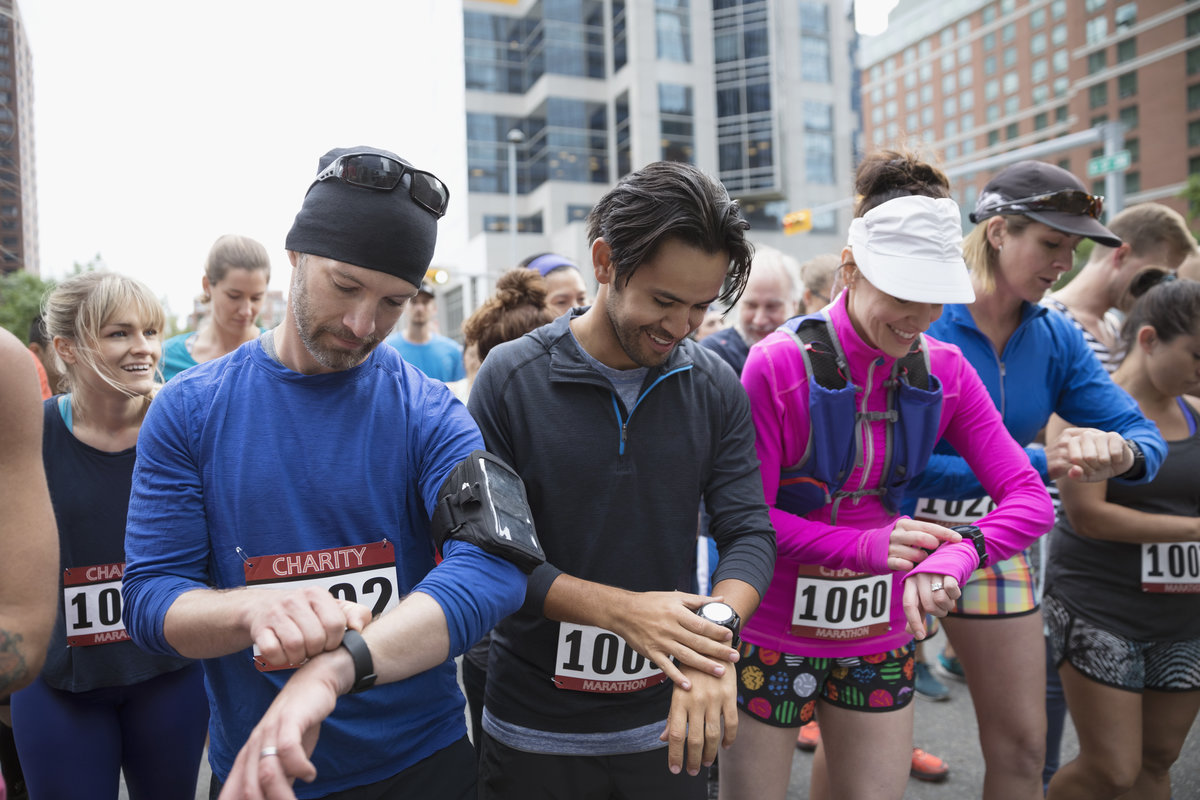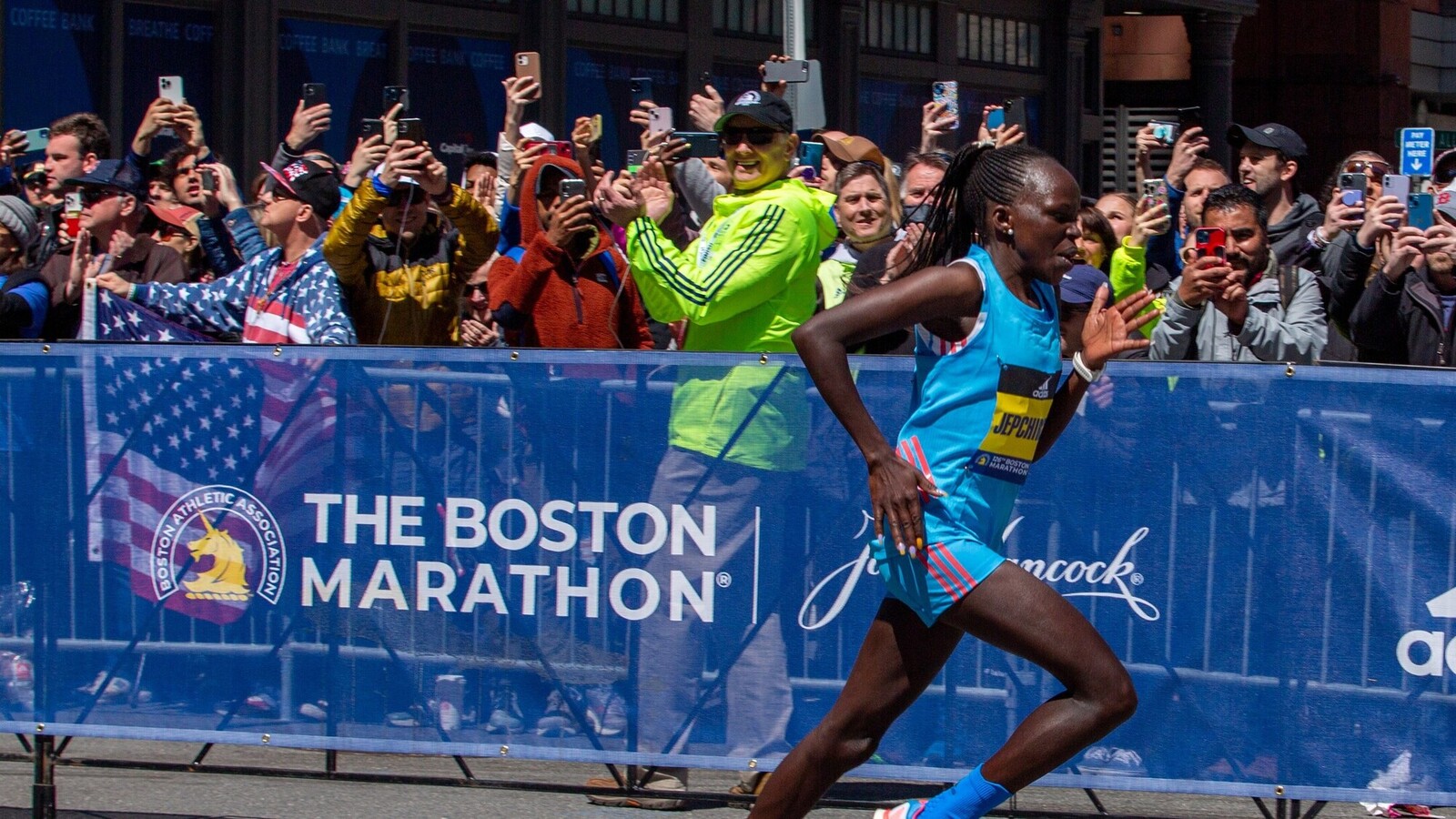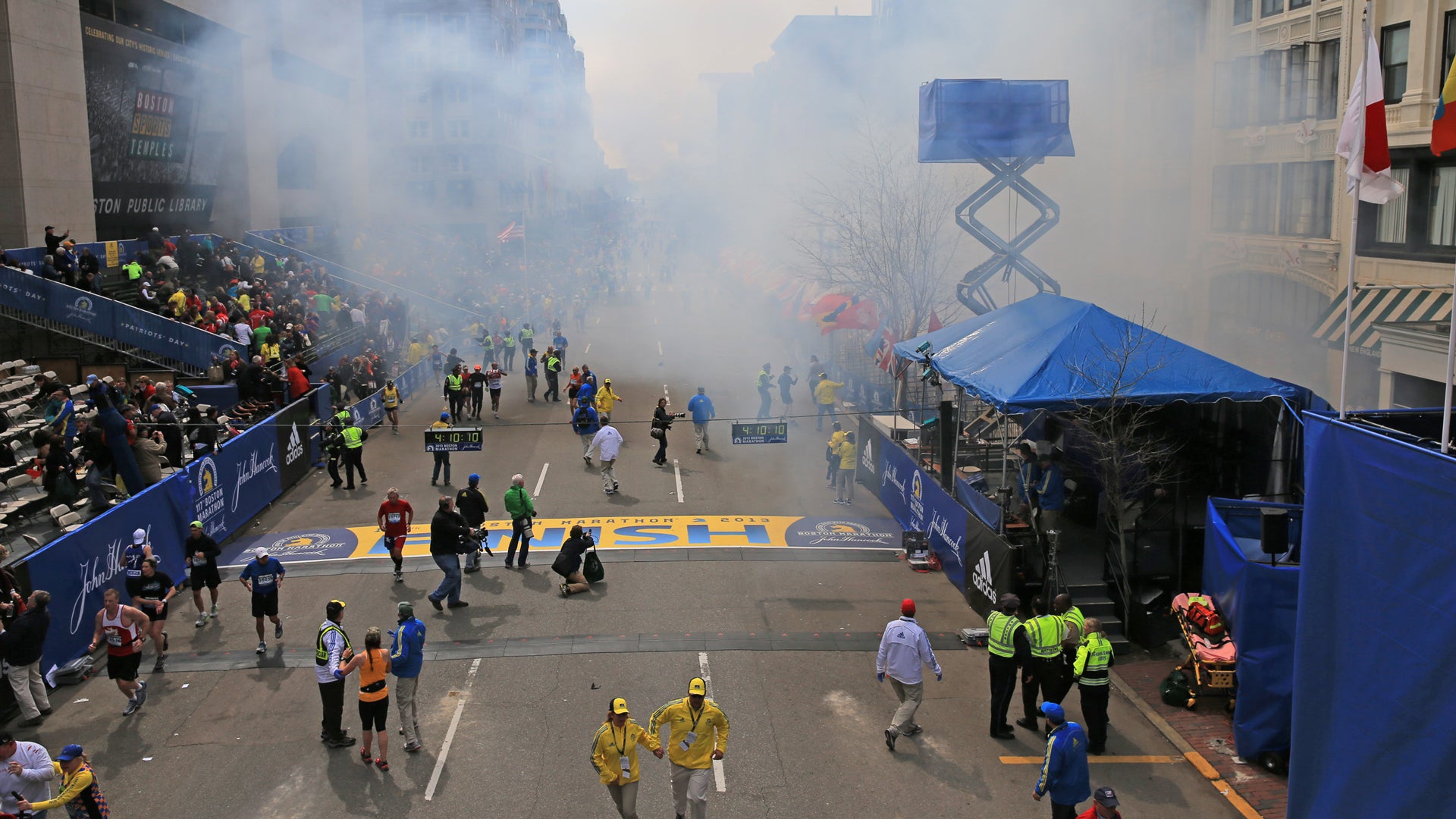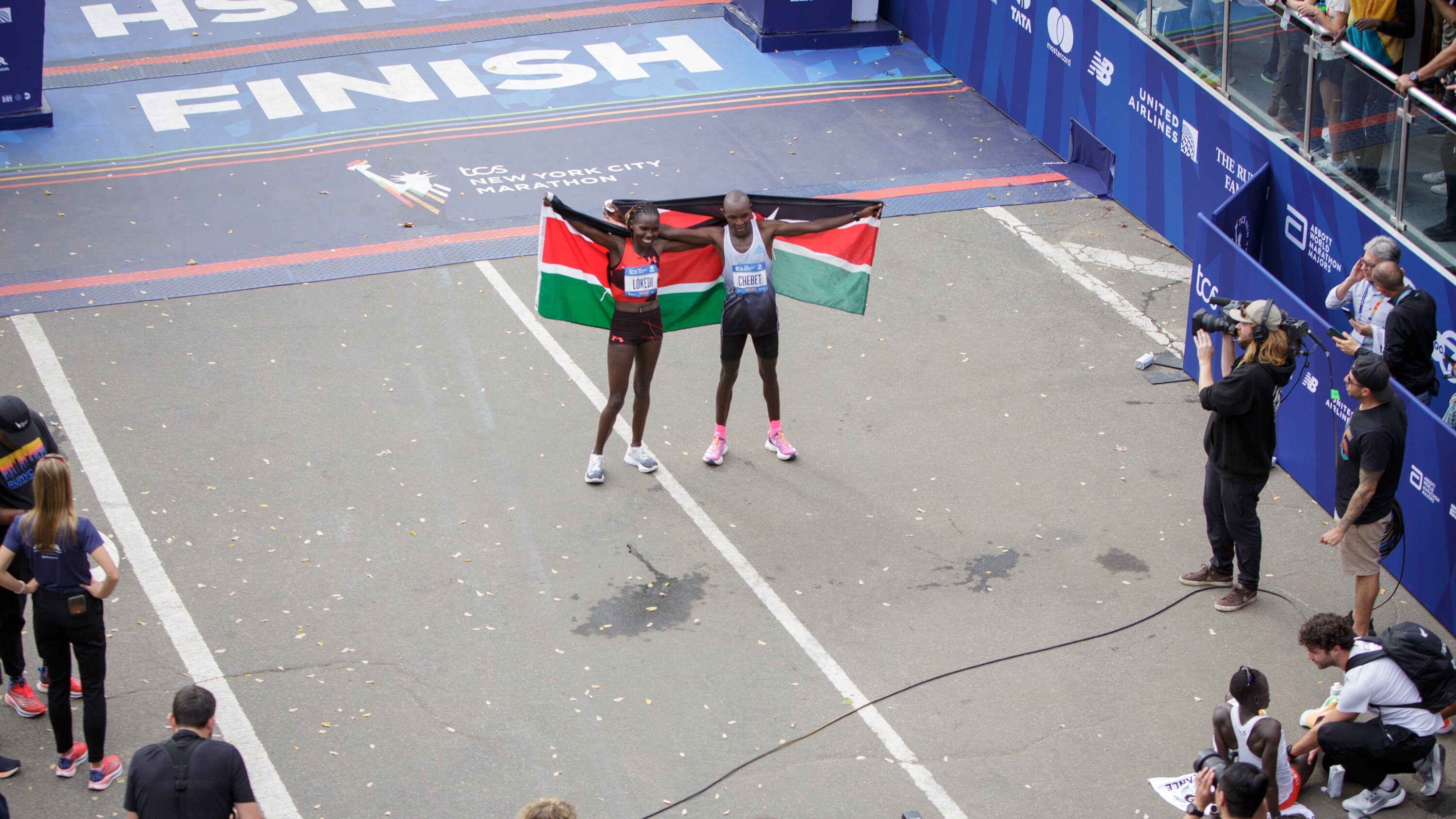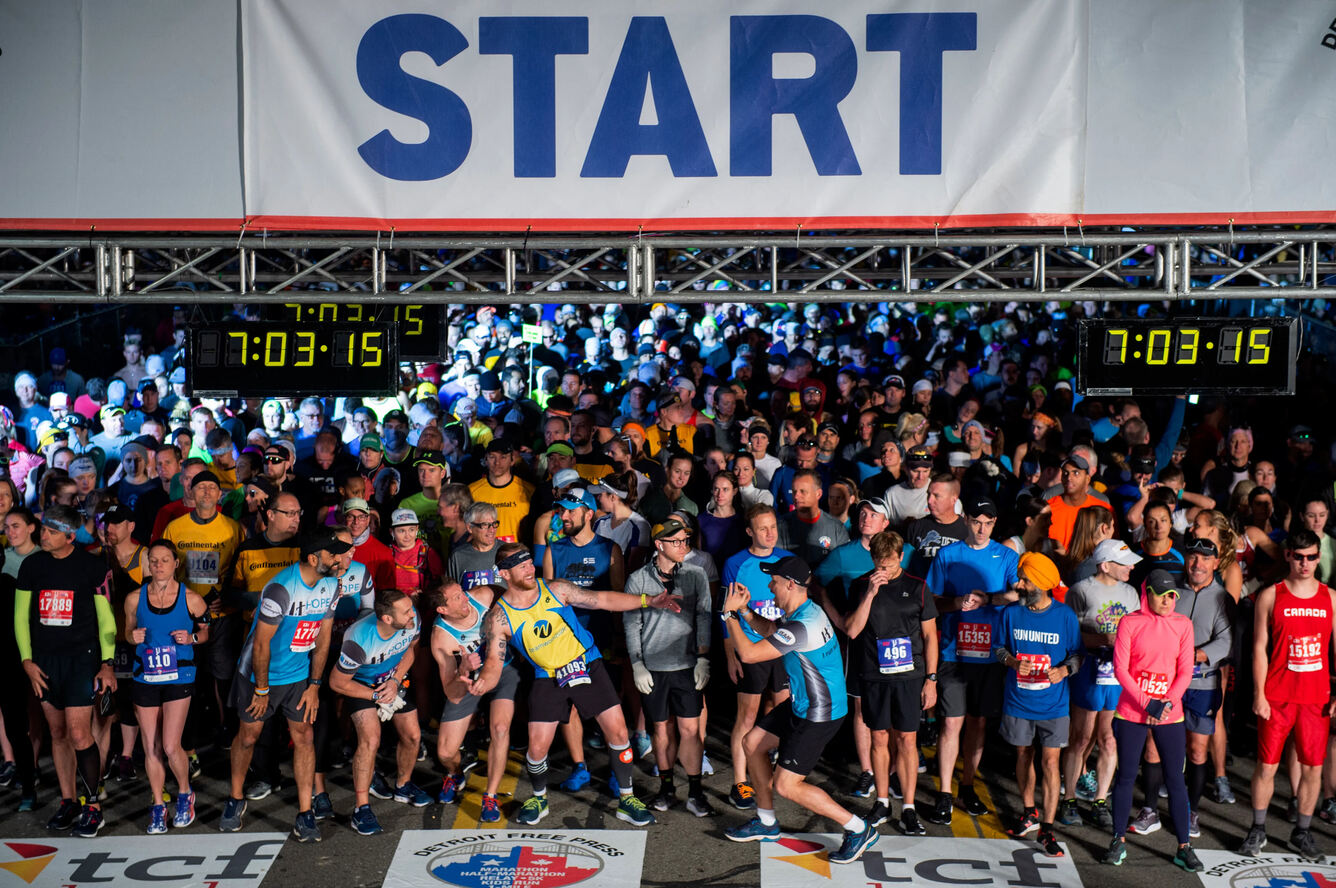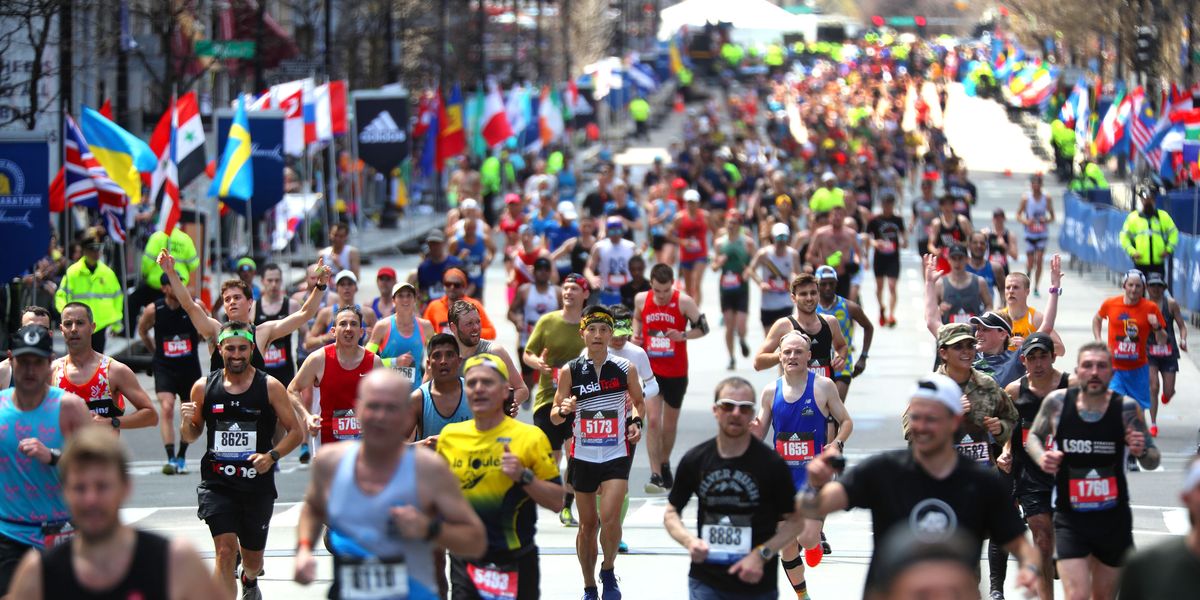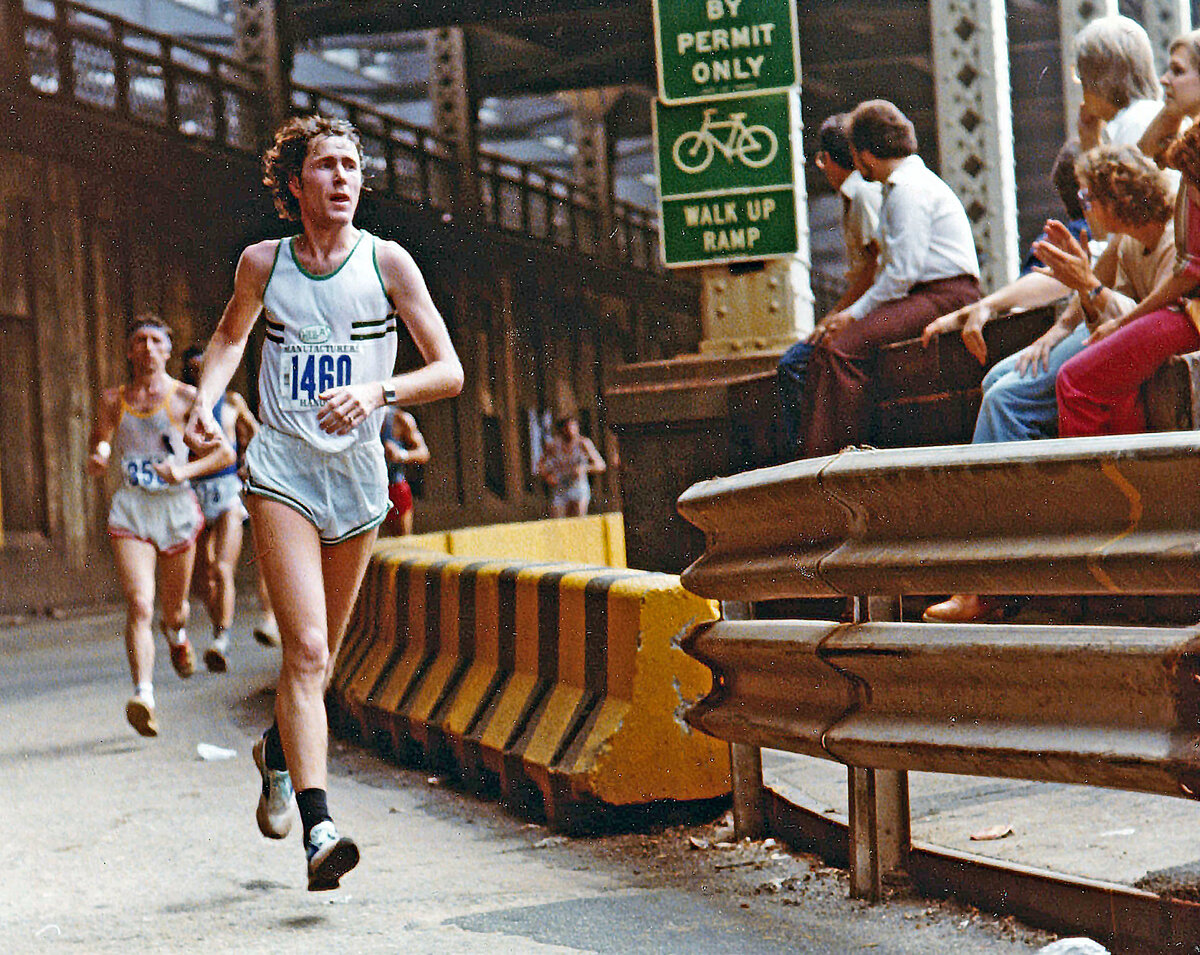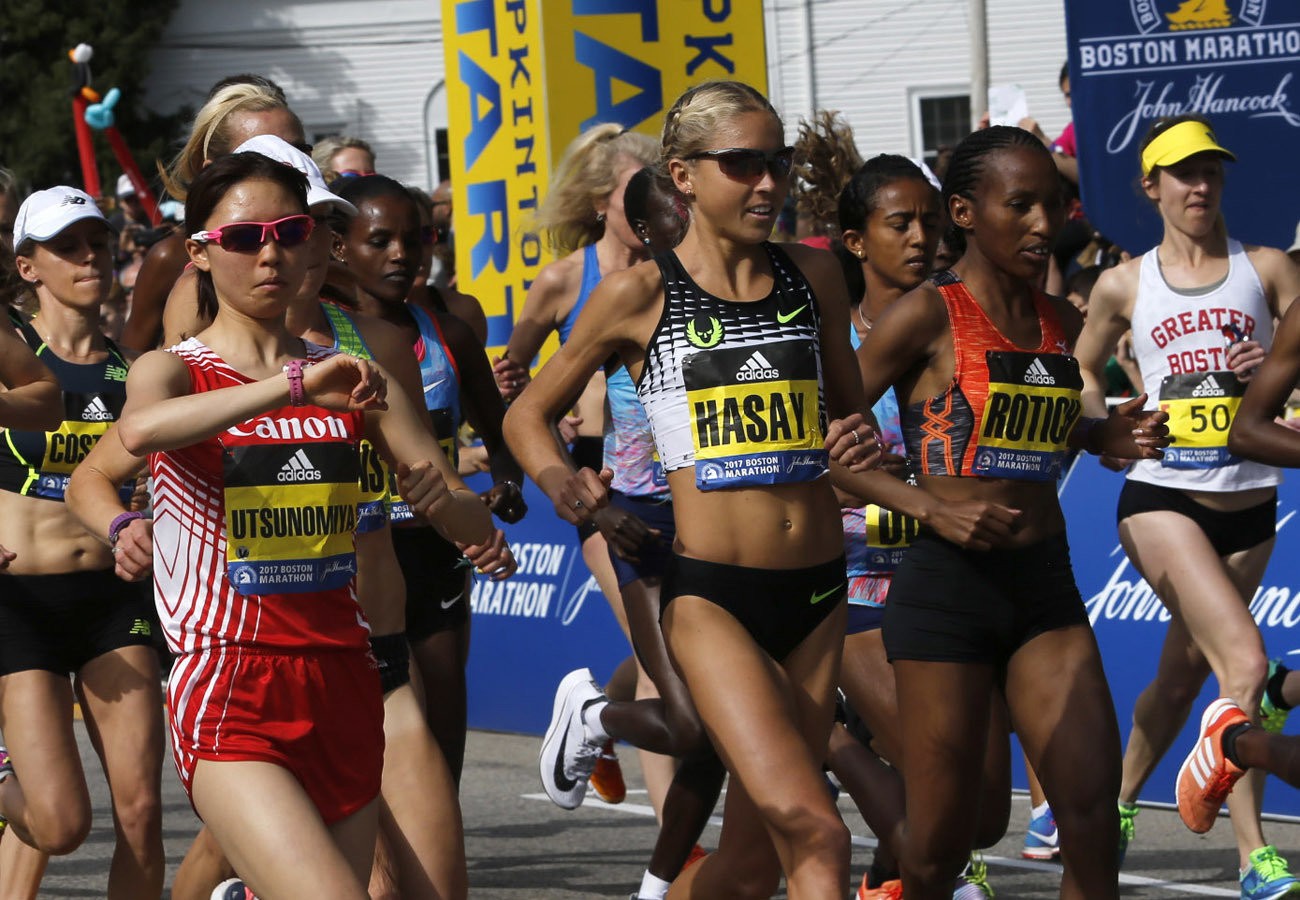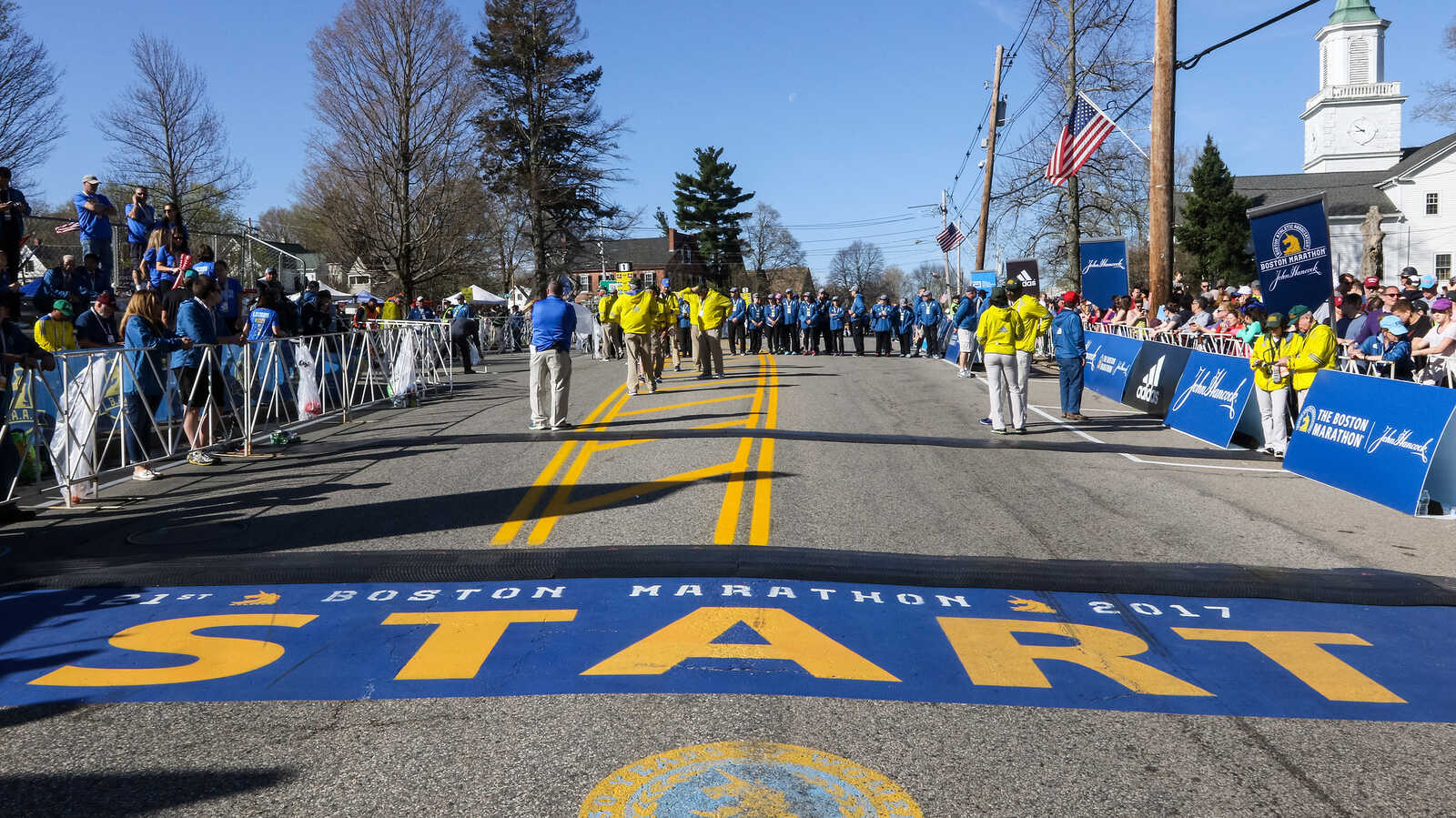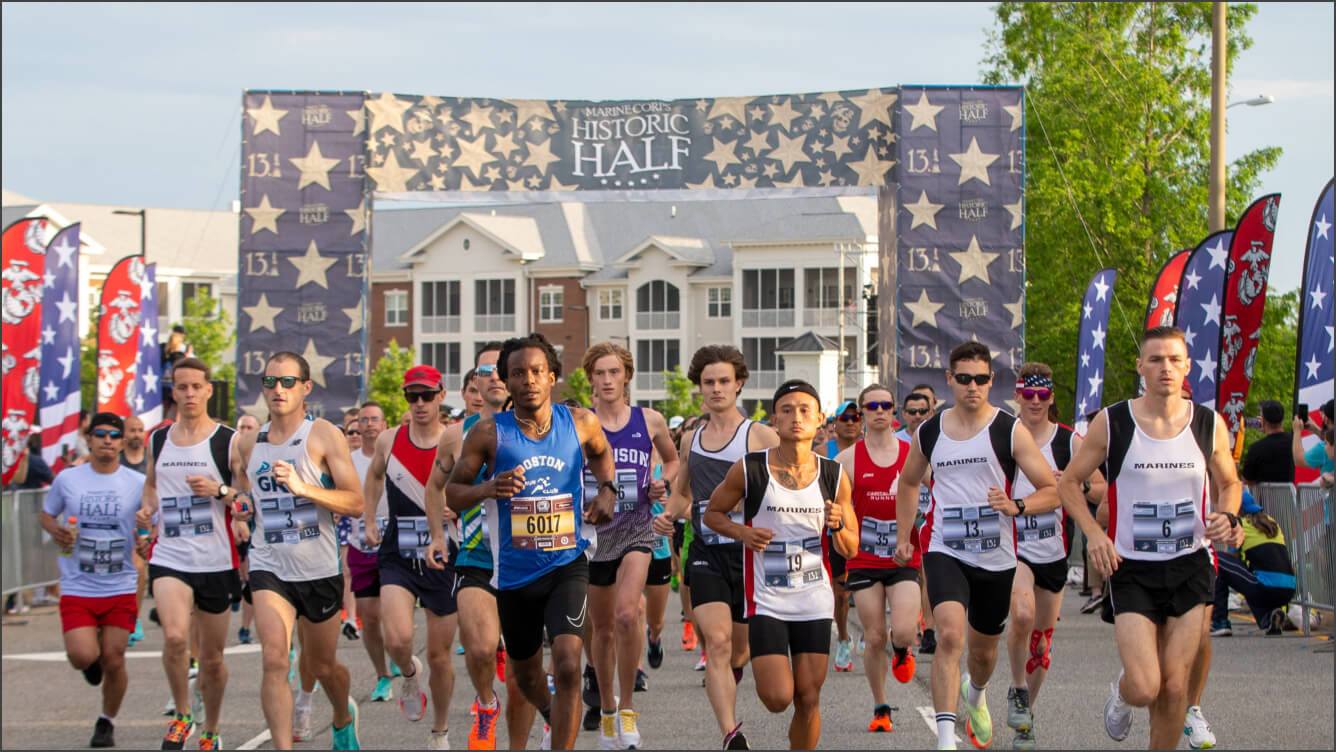Home>Misc>Featured>Which City Hosts The Oldest Annual Marathon In The World
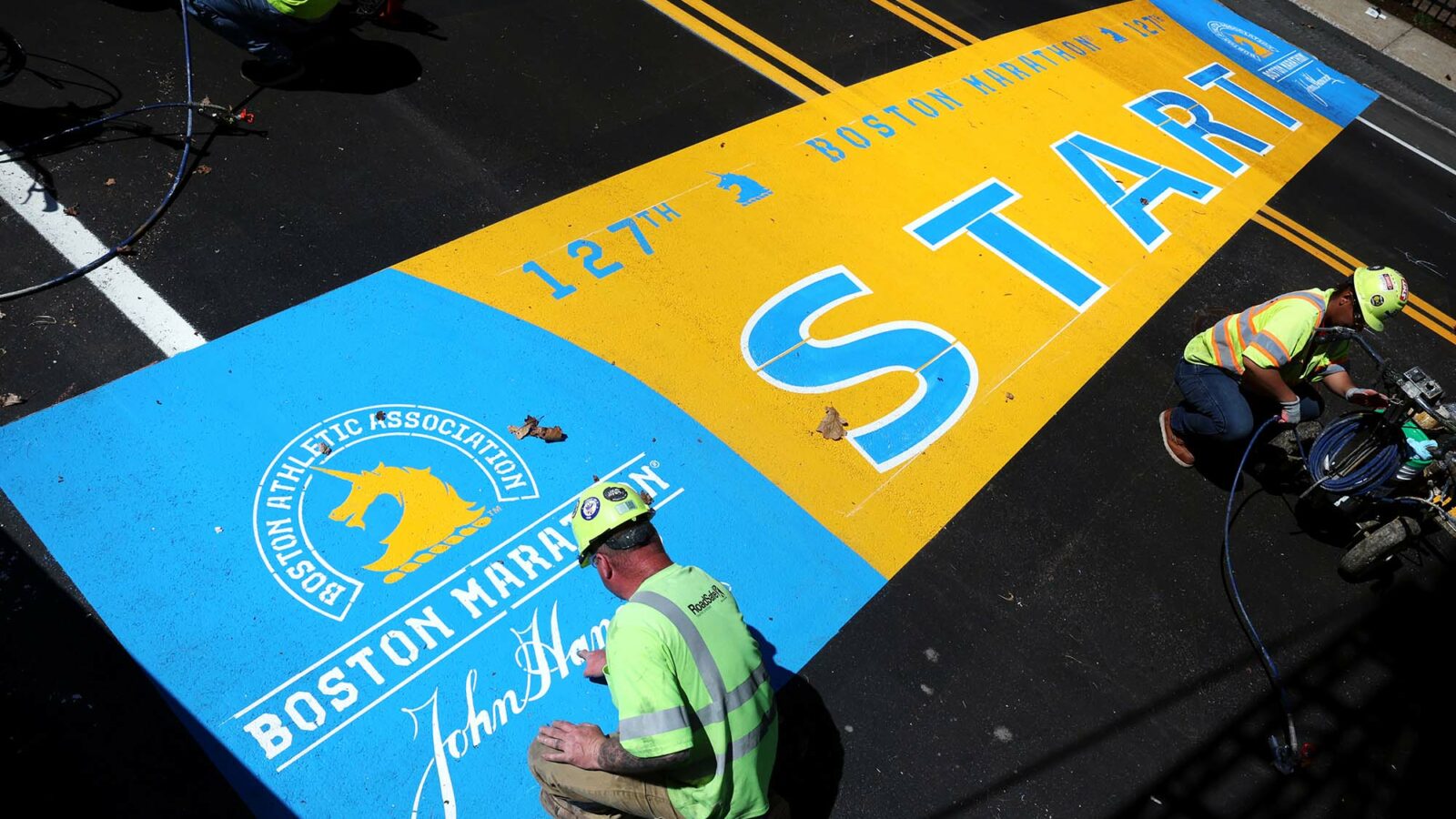

Featured
Which City Hosts The Oldest Annual Marathon In The World
Modified: January 22, 2024
Featured: Discover the ancient tradition in the city that hosts the oldest annual marathon in the world and join athletes from around the globe
Introduction
Welcome to the thrilling world of marathon racing, where endurance, dedication, and the pursuit of achievement intersect. Marathons have become increasingly popular events, drawing participants and spectators from all walks of life. While many cities around the globe host marathons, there is one particular race that stands out as the oldest and most prestigious: the Boston Marathon.
Marathons have a rich history that dates back thousands of years to ancient Greece. Legend has it that the first marathon was run by a messenger named Pheidippides, who raced from the city of Marathon to Athens to deliver news of a military victory. Inspired by this tale, the modern marathon was introduced as an Olympic event in 1896.
The Boston Marathon, established in 1897, reigns as the oldest annual marathon in the world. It has earned a reputation for its challenging course and rich traditions. Held each year on Patriots’ Day, the third Monday in April, the Boston Marathon attracts top athletes and amateur runners alike, all vying for the chance to conquer this iconic race.
The London Marathon, another prominent and historic race, is held in the capital city of England. First organized in 1981, it quickly gained popularity and has become one of the major marathons on the international calendar. With its scenic route and lively atmosphere, the London Marathon offers participants the chance to run past iconic landmarks such as Buckingham Palace and the Tower Bridge.
While the Boston and London Marathons hold significant historical and global recognition, there are other notable marathons that deserve a mention. For example, the Yonkers Marathon, organized in Yonkers, New York, has a unique claim to fame. It is believed to be the oldest continuously running marathon in the United States, tracing its origins back to 1907.
Lastly, we cannot overlook the Athens Marathon, aptly named the “Authentic” Marathon. It is a race of immense historical significance as it retraces the original route run by Pheidippides. Runners have the rare opportunity to follow in the footsteps of ancient Greek athletes, starting in the town of Marathon and finishing at the Panathenaic Stadium in Athens.
In this article, we will delve deeper into the fascinating world of marathons and explore the history, traditions, and significance of these four iconic races. Join us on this virtual journey as we unravel the tales of tenacity, triumph, and the pursuit of greatness.
History of the Marathon
The marathon has a storied history that can be traced back to ancient Greece. The origins of the marathon are intertwined with the legend of Pheidippides, a Greek messenger who is said to have run from Marathon to Athens to deliver news of a military victory. According to the tale, Pheidippides covered a distance of approximately 26 miles before collapsing and dying from exhaustion.
It wasn’t until the late 19th century that the modern marathon as we know it was born. The idea of organizing a race that closely mirrored the mythical journey of Pheidippides captivated the imaginations of a few prominent individuals. Inspired by the ancient Greek tradition, the marathon was introduced as an Olympic event during the inaugural modern Olympics held in Athens in 1896.
It was Pierre de Coubertin, the founder of the modern Olympic Games, who championed the inclusion of the marathon in the Olympic program. In his vision, the marathon symbolized the triumph of human endurance and the indomitable spirit of the athletes. The race distance was set at roughly 25 miles or 40 kilometers, paying homage to the distance covered by Pheidippides.
The first official marathon took place on April 10, 1896, with 17 athletes competing in the race. Spiridon Louis, a Greek water-carrier, emerged as the victor, etching his name in history as the first Olympic marathon champion. This momentous event marked the beginning of a new era for marathon racing.
Over time, the marathon gained popularity and became a coveted event for athletes worldwide. The race distance was standardized to 26.2 miles, or 42.195 kilometers, during the 1908 London Olympics. This distance was established to accommodate the royal family’s request to have the race start at Windsor Castle and finish in front of the royal box at the Olympic Stadium.
Since then, marathons have grown into significant sporting events, drawing participants and spectators from all corners of the globe. The allure of conquering the marathon distance and the exhilaration of crossing the finish line have become a source of inspiration for many. From professional athletes pushing the limits of human performance to amateur runners striving to achieve personal goals, the marathon continues to captivate the hearts and minds of people.
Today, marathons are organized in cities across the world, with each race offering a unique experience and challenging course. These events bring communities together, fostering camaraderie and a sense of accomplishment among participants. From the oldest annual marathon, the Boston Marathon, to the vibrant London Marathon and the historically significant Athens Marathon, each race has its own place in the rich tapestry of marathon history.
The Boston Marathon
The Boston Marathon is more than just a race; it is a symbol of resilience, tradition, and community. Established in 1897, it proudly holds the title of the oldest annual marathon in the world. It is an event steeped in history and has earned its place as one of the most prestigious races in the global marathon calendar.
Held annually on Patriots’ Day, the third Monday in April, the Boston Marathon attracts elite runners, amateur athletes, and enthusiastic spectators from around the globe. Its iconic course covers 26.2 miles, starting in the quiet town of Hopkinton and finishing on Boylston Street in downtown Boston. The challenging terrain, including the notorious Heartbreak Hill, poses a true test of endurance for all participants.
What sets the Boston Marathon apart is its qualification requirements, which make it an exclusive and highly sought-after race. To be eligible to run, participants must meet specific time standards based on their age and gender. This stringent qualification process ensures a competitive field of runners and maintains the race’s reputation as a showcase of excellence.
The Boston Marathon is deeply ingrained in Boston’s culture and holds a special place in the hearts of the city’s residents. It is a celebration of unity and resilience, especially since the tragic events of the 2013 marathon bombing. The race has become a symbol of strength and defiance, with runners and spectators coming together to honor and remember those affected by the attack.
Traditions also play a significant role in the Boston Marathon. The event starts with the playing of the national anthem, followed by the firing of a cannon to signal the beginning of the race. The enthusiastic crowds lining the course, affectionately known as “Boston Strong,” provide unwavering support and encouragement to the runners, creating an electrifying atmosphere that fuels their determination.
The Boston Marathon is not just about winning; it is about the journey and the personal triumphs of every participant. Completion of the race is seen as a remarkable achievement, irrespective of finishing time. The sense of accomplishment is evident as runners cross the finish line, often accompanied by tears of joy and embracing loved ones.
Additionally, the Boston Marathon has had its share of remarkable moments and record-breaking performances. From the four-time champion Bill Rodgers to the unforgettable duel between Dick Hasket and Alberto Salazar, the race has witnessed many memorable feats of athletic prowess.
Year after year, the Boston Marathon continues to captivate the world with its rich traditions, inspiring stories, and unwavering spirit. It is an event that showcases the power of human determination and embodies the true essence of marathon racing.
The London Marathon
The London Marathon, established in 1981, has become one of the most prestigious and beloved marathons in the world. Held annually in the capital city of England, it attracts participants from all corners of the globe, making it one of the largest marathons in terms of participation.
What sets the London Marathon apart is its picturesque and iconic course. Runners have the opportunity to traverse the historic streets of London, passing by famous landmarks such as Buckingham Palace, the Tower Bridge, and the Houses of Parliament. The course showcases the city’s rich history and cultural significance, providing runners with a truly captivating and memorable experience.
The London Marathon is not just a race; it is a celebration of community and charitable giving. The event is known for its strong focus on fundraising, with thousands of participants raising millions of pounds for various charitable causes every year. Runners often don creative costumes or represent charitable organizations, adding a vibrant and festive atmosphere to the race. It is this philanthropic spirit that has made the London Marathon a beacon of hope and positivity.
Another unique aspect of the London Marathon is the incredible support from the spectators. The streets are lined with cheering crowds, offering encouragement and motivation to the runners throughout the race. From the start line in Greenwich to the finish on The Mall, the energy and enthusiasm of the spectators provide an extra boost, helping participants push through the inevitable physical and mental challenges of the marathon distance.
Throughout its history, the London Marathon has witnessed exceptional performances and record-breaking achievements. It has welcomed some of the greatest marathon runners, both male and female, who have showcased their incredible athletic abilities. From the legendary Paula Radcliffe’s world record-breaking run to Eliud Kipchoge’s stunning sub-two-hour marathon, the event has witnessed moments of greatness that have become part of the marathon’s tapestry.
Not only does the London Marathon attract elite runners, but it also embraces amateurs and recreational runners of all abilities. The atmosphere is inclusive and supportive, creating an environment where personal accomplishments are celebrated and dreams are realized. The race offers a chance for individuals to challenge themselves, surpass their limits, and experience the euphoria of crossing the finish line.
In addition to the main race, the London Marathon includes wheelchair races and events for young runners, ensuring that everyone has the opportunity to be part of this extraordinary celebration of running.
Year after year, the London Marathon continues to captivate the world with its spectacular course, charitable endeavors, and incredible moments of sporting achievement. It is an event that showcases the vibrant spirit of London and highlights the transformative power of running.
The Yonkers Marathon
The Yonkers Marathon holds a unique place in the world of marathons as it is believed to be the oldest continuously running marathon in the United States. Dating back to 1907, this historic race has a rich history and is deeply ingrained in the community of Yonkers, New York.
The Yonkers Marathon course is renowned for its challenging nature, with hilly and undulating terrain that tests the endurance and determination of the runners. The race starts and finishes in downtown Yonkers, taking participants through scenic neighborhoods and along the picturesque Hudson River. This demanding course adds an extra layer of excitement and achievement for those who participate.
Despite being a challenging race, the Yonkers Marathon has always maintained a strong sense of community and camaraderie. The event draws both elite athletes and local runners, creating an inclusive and supportive environment for all participants. Runners cheer each other on, sharing in the common goal of crossing the finish line and accomplishing their personal running objectives.
The Yonkers Marathon also embraces its historical significance and long-standing traditions. Many of the event’s organizers and volunteers have been involved for decades, passing down the knowledge and passion for the race from one generation to the next. This continuity and dedication are what have allowed the Yonkers Marathon to stand the test of time.
Throughout its history, the Yonkers Marathon has had its share of memorable moments and standout performances. Runners from all walks of life have left their mark on the race, creating stories that inspire and captivate. Whether it is a local runner achieving a personal best or an elite athlete setting a new course record, each accomplishment is celebrated and adds to the legacy of the race.
Additionally, the Yonkers Marathon has become an important event for the local community, attracting spectators who line the streets to cheer on the runners. The race has become a cherished tradition that brings together residents, businesses, and visitors, fostering a sense of pride and unity in Yonkers.
Participation in the Yonkers Marathon is not solely about the race itself but also about making a positive impact on the community. The event has been a platform for charitable initiatives and fundraising endeavors, giving participants the opportunity to contribute to important causes and make a difference in the lives of others.
As the oldest continuously running marathon in the United States, the Yonkers Marathon carries a legacy of athleticism, community spirit, and enduring tradition. Each year, the race continues to inspire runners to push their limits, embrace the challenge, and forge lasting memories. The Yonkers Marathon stands as a testament to the resilience and passion of the running community.
The Athens Marathon
The Athens Marathon, often referred to as the “Authentic” Marathon, holds a special place in the hearts of runners around the world. Steeped in history and legend, this race retraces the footsteps of Pheidippides, the legendary messenger who ran from the town of Marathon to Athens to deliver news of a military victory.
The Athens Marathon is unlike any other marathon in the world. The race begins in the town of Marathon, located about 26.2 miles (42.195 kilometers) northeast of Athens. Runners follow a challenging and scenic course that winds its way through rugged countryside and picturesque landscapes.
The course culminates at the Panathenaic Stadium in Athens, the site of the first modern Olympic Games in 1896. As runners enter the stadium, they are greeted by the roaring cheers of spectators, creating an electrifying atmosphere that fuels their final push towards the finish line.
Participating in the Athens Marathon is a truly immersive experience, connecting runners with the rich history and cultural heritage of ancient Greece. Along the course, runners pass landmarks and monuments that date back centuries, such as the Tomb of the Athenians and the Bridge of the Vravronas River.
What sets the Athens Marathon apart is the sense of reverence and awe that envelops the event. The race is a testament to the enduring legacy of the ancient Olympics and the values of perseverance and determination that marathon running embodies. As participants cover the same route that Pheidippides traversed, they become a part of a remarkable tradition that has endured for over two millennia.
Moreover, the Athens Marathon is not just about running; it is a celebration of Greek culture and hospitality. The race weekend is filled with festivities, including an expo showcasing local products, music, and dance performances, and opportunities to explore the vibrant city of Athens. Runners and their families have the chance to immerse themselves in the beauty and cultural richness of Greece.
The Athens Marathon is a race that attracts participants from all over the world, ranging from professional athletes to recreational runners. It is an event that embodies the spirit of human endeavor and the pursuit of personal excellence. Crossing the finish line in the Panathenaic Stadium is a moment of triumph and euphoria, a realization of the extraordinary feat accomplished.
For many, the Athens Marathon is a bucket list race, a dream come true to experience the birthplace of marathon running and pay homage to the ancient Greek traditions. The race allows runners to forge a deep connection with history, to become part of a tapestry that spans centuries.
The Athens Marathon is not just a feat of physical endurance; it is a pilgrimage to honor the origins of the marathon and celebrate the indomitable human spirit. It is a race that leaves an indelible mark on the hearts and minds of all who take part.
Conclusion
Marathons hold a special place in the world of sports and capture the hearts and minds of people around the globe. From the oldest annual marathon, the Boston Marathon, to the vibrant London Marathon, and the historic Athens Marathon, each race represents a unique blend of athleticism, tradition, and community.
The Boston Marathon stands as a symbol of resilience, embodying the strength and unity of the city in the face of adversity. With its challenging course and prestigious qualification standards, it has cemented its position as one of the most revered marathons worldwide.
The London Marathon, on the other hand, showcases the best of both sport and philanthropy. Its scenic course, enthusiastic spectators, and strong emphasis on fundraising for charitable causes make it a true celebration of community and giving back.
The Yonkers Marathon, as the oldest continuously running marathon in the United States, carries a legacy of tradition and camaraderie. It is a race that challenges participants while fostering a sense of community spirit and paying homage to its storied history.
Lastly, the Athens Marathon holds a place of honor as the race that traces the footsteps of Pheidippides. It is a pilgrimage to the birthplace of marathon running, allowing participants to immerse themselves in ancient Greek history and culture.
Together, these four marathons represent the essence of human endeavor, pushing the boundaries of physical and mental resilience. They showcase the triumph of the human spirit and the extraordinary achievements that can be accomplished through determination and dedication.
Whether it’s the competitive nature of the Boston Marathon, the philanthropic endeavors of the London Marathon, the community spirit of the Yonkers Marathon, or the historical significance of the Athens Marathon, each race leaves an indelible mark on athletes and spectators alike.
As we reflect on the legacy and impact of these marathons, one thing is clear: they have the power to inspire, unite, and transform lives. The stories of triumph, the camaraderie among participants, and the shared experiences of overcoming challenges create a sense of connection that transcends borders and cultures.
So, whether you’re a dedicated runner seeking a new challenge or an ardent spectator looking to witness the remarkable feats of human achievement, immerse yourself in the world of marathons. Experience the thrill, embrace the history, and join the global community that comes together to celebrate the relentless spirit of marathon running.
